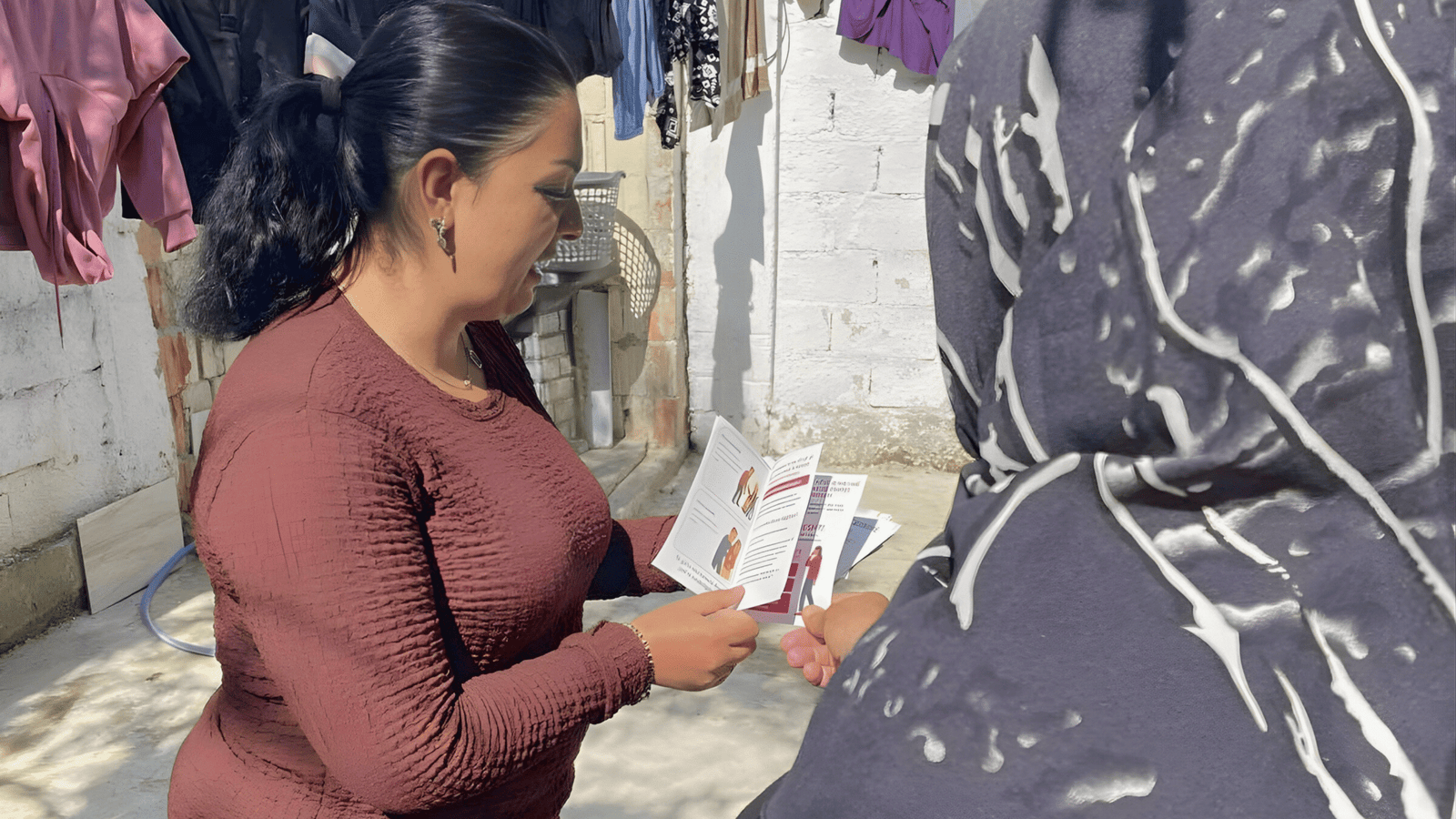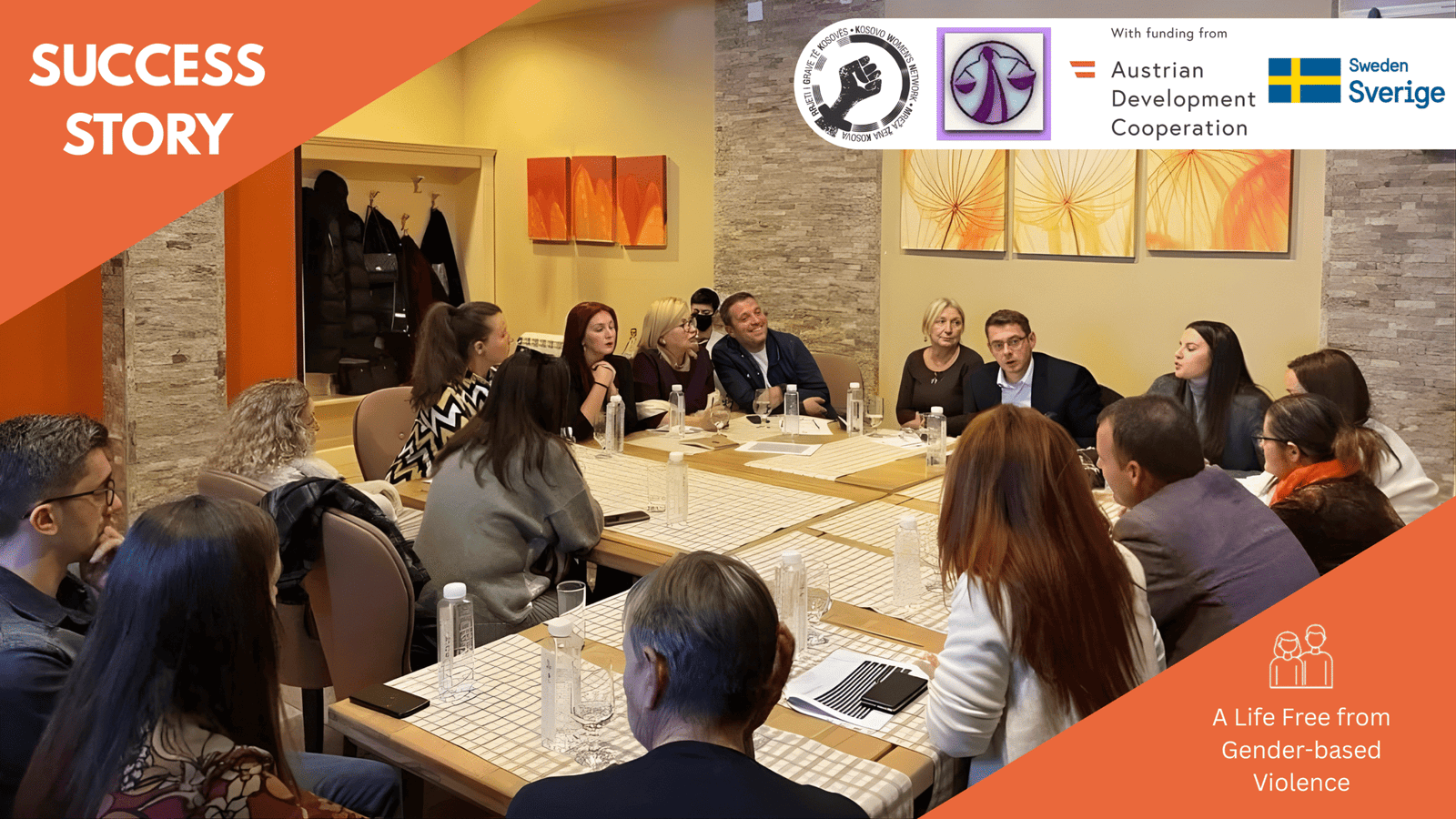On 15 October 2025, education expert Arbresha Meha participated on behalf of the Kosovo Women’s Network (KWN) in the “Sustainable Higher Education and Research in Kosovo” (SHER) Workshop on Gender Equality. Meha shared key findings from KWN’s forthcoming research on sexual education and gender equality in pre-University education in Kosovo.
Meha stated that schools continue to reinforce gender stereotypes through language and schoolbook illustrations, noting that stereotypes present in higher education stem from and are visible already at an early education level. While many teachers express their interest in utilising gender-responsive teaching practices, they have had insufficient training to strengthen their capacities to do so. Emphasising the importance of the individual teacher, Meha stated that while policies come from a higher level, “individuals make the difference”. She stressed the need for more teacher training, stronger institutional support, and clear guidelines on implementing specific parts of curricula.
Particularly challenging topics that are insufficiently addressed in many schools include bullying and harassment, as well as sexual education, which remains largely taboo. While sexual education is partially included in subjects such as biology, these lessons often focus mainly on physical aspects, neglecting psychological and social dimensions. Treatment of these topics is also fragmented, with many teachers skipping sections of the curriculum or leaving them for at-home studies. This is partly due to teachers not feeling prepared to address them and partly due to broader cultural norms, which also exist outside the classroom.
Meha shared an example of a teacher training organised by KWN in 2024. After the training, classroom observations were conducted to assess changes in teaching approaches. The data showed improved awareness and willingness among teachers to address gender and sexual education topics. While a single training session is insufficient for lasting change, these results highlight the importance of longer, dedicated training modules, followed by monitoring and continuous support. Meha noted that training on gender norms and gender-transformative pedagogy should become a compulsory part of higher-education teacher qualifications.
“From evidence to action, clear curricula, teacher training and supportive school environments can turn findings into classroom practice,” she emphasised.
Other obstacles to inclusive and equitable education highlighted during the workshop, and in KWN’s forthcoming report, include outdated school infrastructure. Most schools do not provide adequate conditions for students with disabilities and some still rely on obsolete teaching resources.
KWN’s research was carried out in close collaboration with KWN member organisations, the Ministry of Education, Science, Technology and Innovation (MESTI) and several municipal governments with financial support from Austrian Development Cooperation (ADC) and Sweden. KWN seeks to collaborate with MESTI and other actors working in the education sector like SHER towards improving the gender-responsiveness of education, based on these findings.
The SHER Programme, supported by ADC and MESTI, also seeks to promote gender-responsive education and research in Kosovo.







